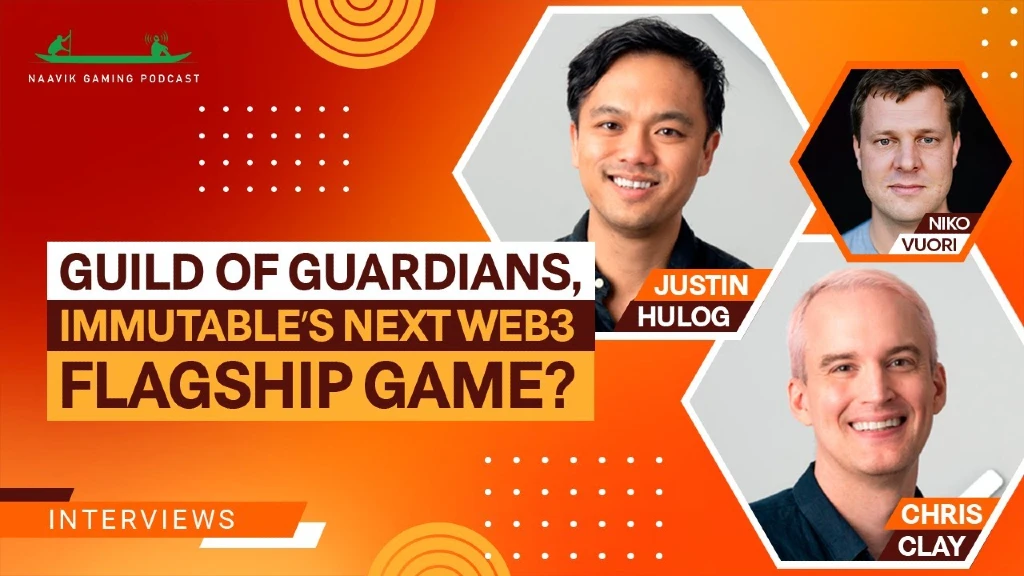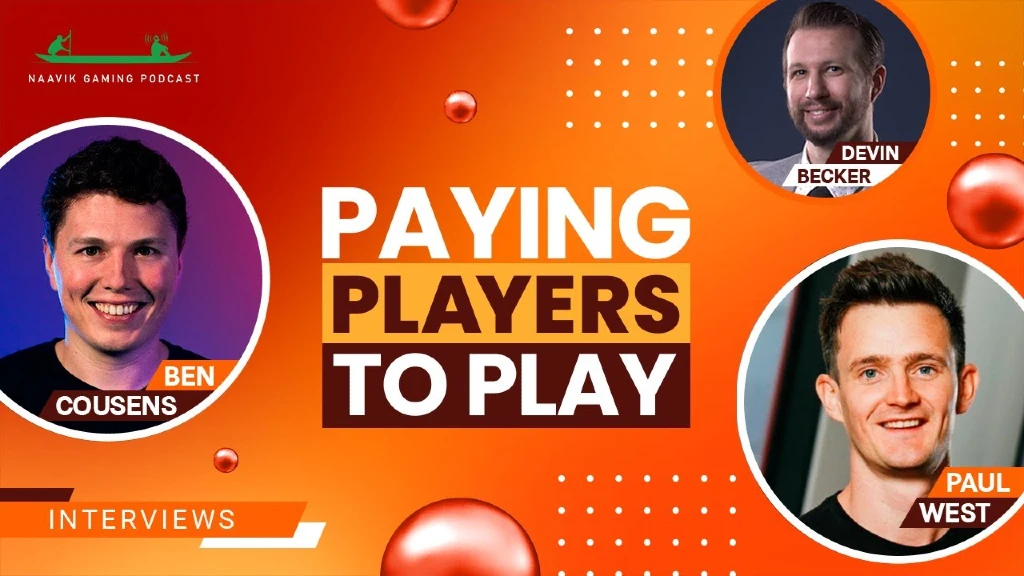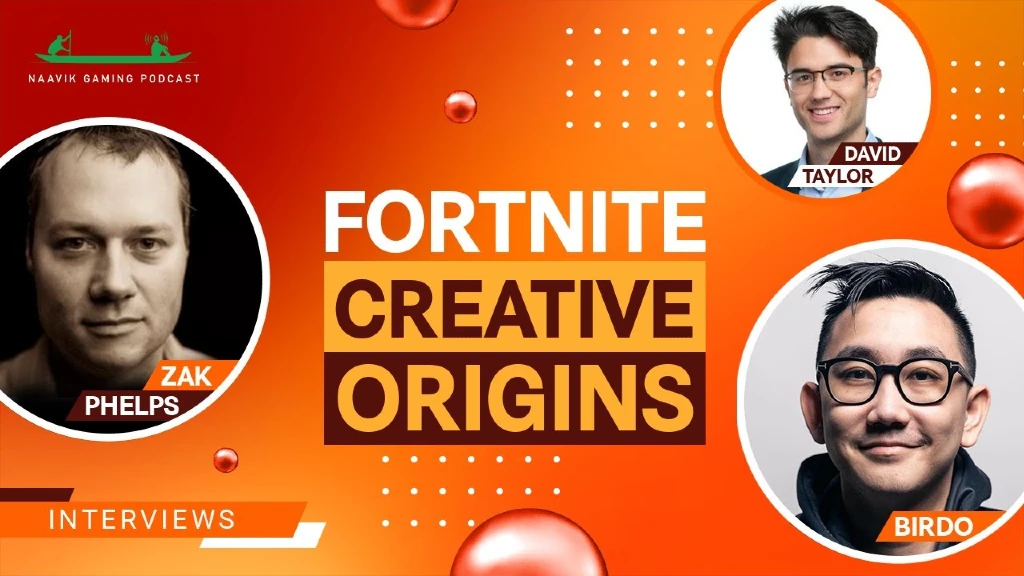I had the pleasure of interviewing Steve Arhancet, co-CEO of Team Liquid, which is one of the world’s largest and most notable esports organizations. We discuss Steve’s journey, his approach to leadership and company culture, what it takes to build a multigenerational brand, the new Liquid+ platform, where esports needs innovation, and more. Please enjoy our wide-ranging conversation (and subscribe to get notified of future interviews).
Laying the Foundation
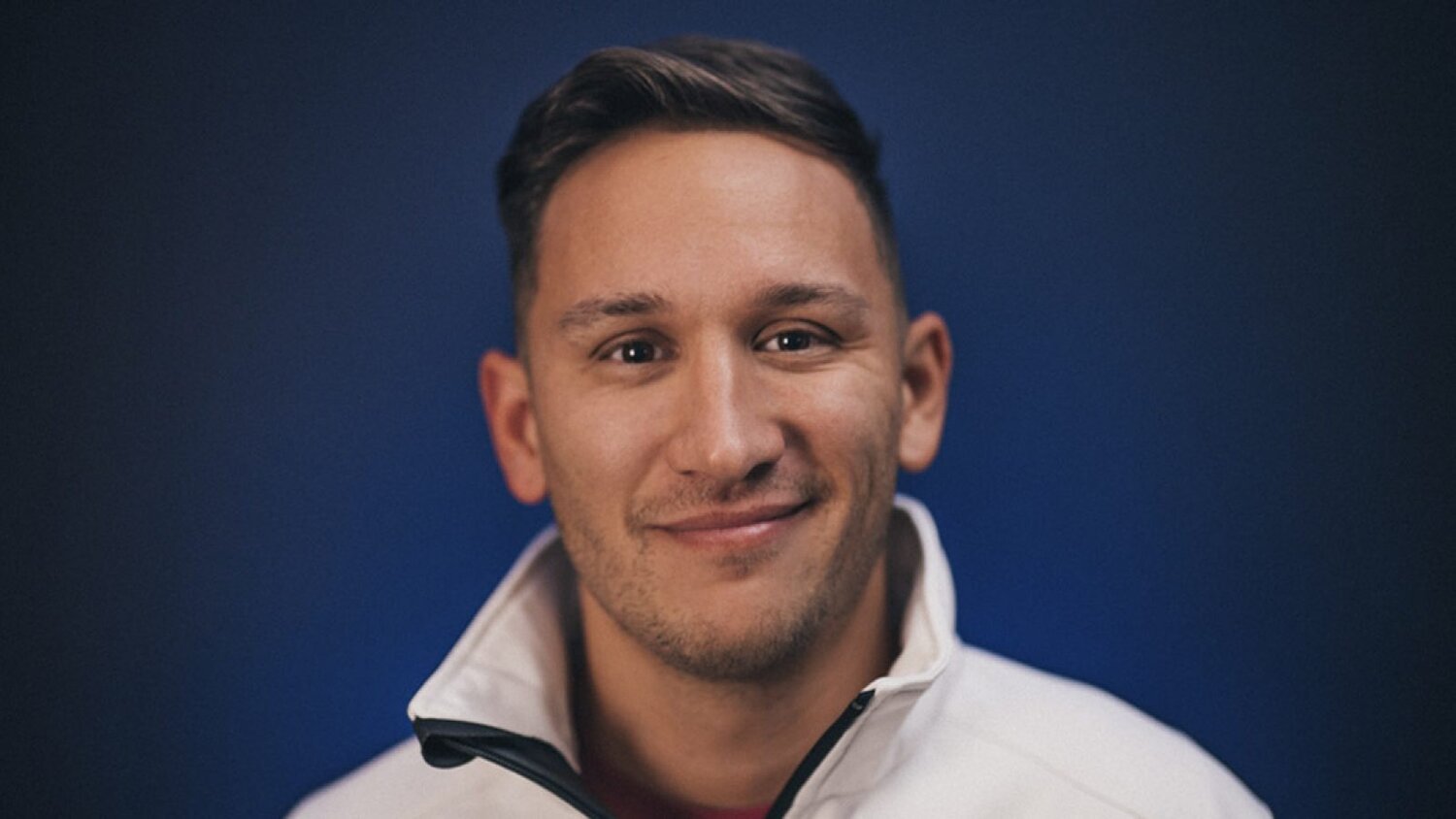
Aaron Bush: Let’s begin with a couple foundational questions for readers who may not be as familiar with you or Team Liquid. First, how did you go from working in finance to being co-CEO of one of the largest esports organizations in the world? What were the key milestones on that journey, and how did those prepare you to lead Team Liquid?
Steve Arhancet: I've been a gamer all my life. Speaking of it in terms of milestones, it started the first time my parents got me an Atari, after that a Nintendo, and then a Super Nintendo, and then a Sega Genesis. My dad was a computer consultant, so he had a PC in the basement and one of those external modems to go online on AOL when it was black and white, before there was color, where we got the CD from Blockbuster in order to install it. A lot of the genesis for giving my heart and my time to this space has been from those passions that were created early on.
I went to college, like most individuals, and thought to myself, "What am I going to do to make money and be successful?" I did a major in business management with a focus on entrepreneurship, technology, and innovation. I actually told myself, when I was in this course called COB 300, "What is the one area I don't want to go into?" It was finance. Of course, I ended up going into finance after I graduated, mostly because of making money. I know that sounds horrible, but that's what it was. I built a financial planning practice and got my Series 7 and 66, made my own business, had staff, and had a hold on a segment of the market in the Washington DC Metro Area. I built a financial planning practice, all the while playing tons of video games - StarCraft, DOTA, and then when League of Legends came out, that was the next major milestone. I really took to the game. I was pretty good early on and climbed to the top of the ladder.
The next milestone was that the one major league that everyone wanted to get into was called ESL Pro League. This is before Riot did any sanctioned events. They're the developer for League of Legends. I wrote an essay to get into ESL Pro League. It was so random. They had all the teams - TSM, CLG. There was one more spot, and to get in there wasn't even a qualification. You just had to write an essay about your team. So I wrote an essay. Of course, I didn't have a team yet, but once I got accepted, I put the team together, and that was the genesis of me, Nyjacky, and Pobelter. We started competing and traveling around the world to international events. We were in the IEM circuit, so we were going all over the world on weekends, competing, earning points to get to the world championships for the Intel Extreme Masters. We ended up qualifying. We went and we finished sixth or seventh.
Fast-forward, I met up with Victor (the founder of Team Liquid) at BlizzCon, and we hit it off on ethics, values, how to treat people, our staff, our philosophy, and approach to business. He was taken aback when I first tossed the idea to him. I was like, "What do you think about merging our companies?" He was like, "Let me think about that." But we did it. We did it on a Word doc. We didn't even get attorneys involved. We just said, "Let's merge the companies together and start working on this. If we like it, then let’s follow through with it." It worked out really well. About two years later we needed capital, because we had both bootstrapped our companies to that date, using revenue that we were generating at the time. That’s when we partnered up with Peter Guber and Ted Leonsis, who invested into Team Liquid, took a majority stake, and since then have done a number of our rounds. We put that capital to work in wise ways. We decided what not to do as much as what we decided to do. We saw a lot of other teams and companies making pretty poor decisions based on just not knowing gaming or esports at all. So we avoided a lot of landmines and we built a brand, with the goal of becoming a multigenerational esports team, and we were the first generation. That's led us to become one of the largest esports teams in the world today.
I love the aspiration, and we’ll get right back to that. But quickly, what is the anatomy of Team Liquid today?
Right now we have over 150 full-time employees. We pay another 150 part-time contractors per month. We compete across 17 of the world’s top games like League of Legends, Dota 2, and CS:GO. We have three main offices - one Alienware training facility in the Netherlands, Victor's hometown, and one in Santa Monica. Both are about 8,000 to 10,000 square feet. We also have a facility in Brazil that fields a lot of our content and participation for our local Rainbow Six and Free Fire teams.
On Building a Multigenerational Brand and Direct-to-Consumer Relationships
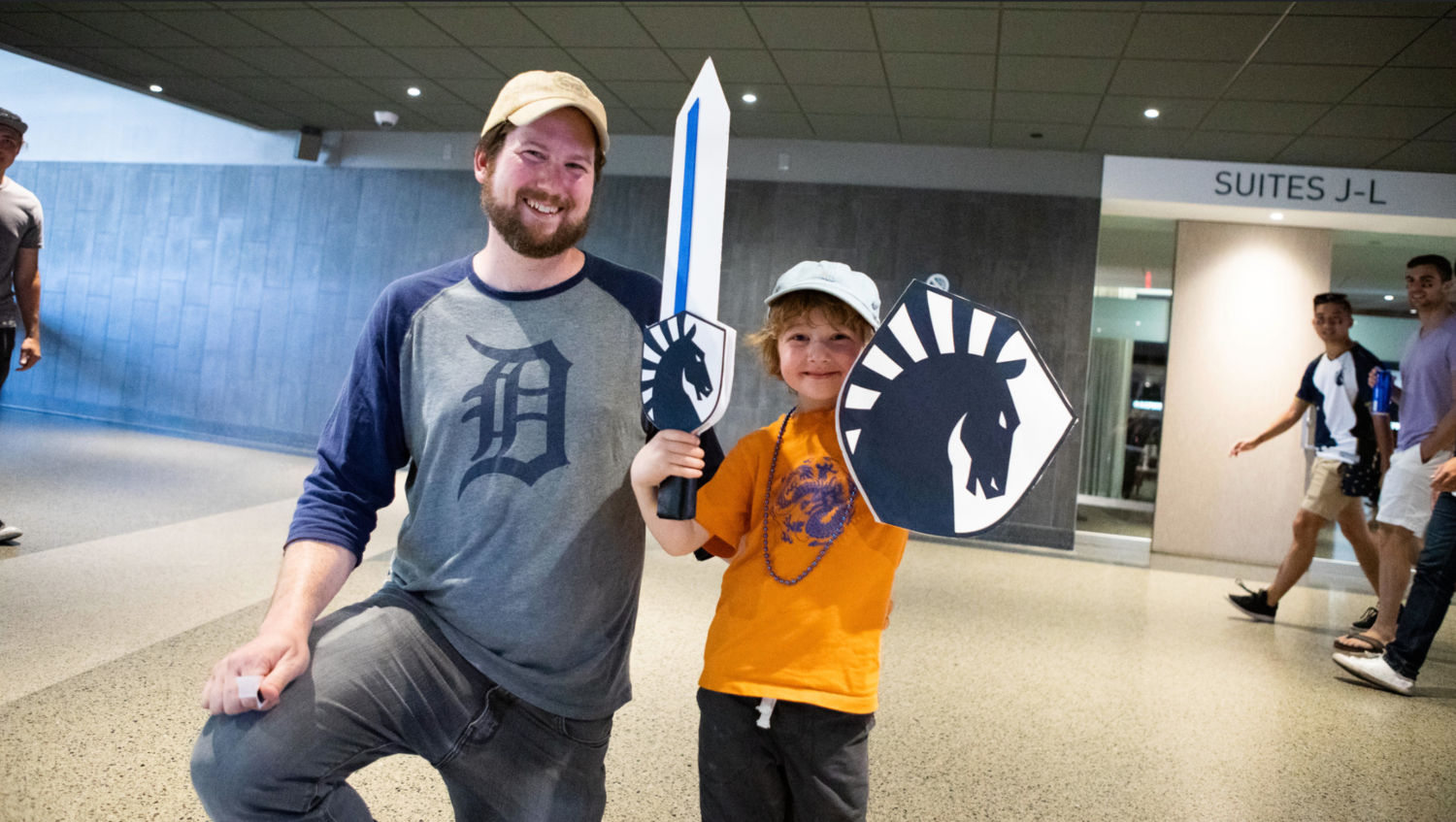
In a recent interview, you mentioned that not only do you want Team Liquid to become a multigenerational brand but also the most recognized brand in esports. How do you do that? What is Team Liquid's plan to win fans among everyone else and keep them for decades?
It's not easy, but if I were to identify the underpinnings of what leads to that success, the first is being global. The opportunity for esports, as a comparison to traditional sports, is that it's global in nature. It’s important to have real representation, not just a team or few influencers, but real ground and a place in all of the major esports regions. That's number one. Number two is to participate in all of the major esports. The product life cycle for each of these games ebbs and flows. There are some that maintain notoriety and exposure, and some that last 30 days and don't make it. Having a really good gauge of what games to participate in and to what degree you participate in those is the second piece of it. The third is earning heart share, which a lot of other esports organizations struggle with, and that is creating a conversation with fans. Not just a one-directional publishing of content, but a means of recognizing loyalty, remembering the people that you talk to. It sounds so simple, but if you have a friend group, and you've seen somebody for the third time, you don't want to be asking for their name. It's kind of rude.
Within those three things, if you can create content, distribute it globally, compete in all the major titles, win — which is important because you're more likely to be seen at the finals than you will at the qualifier — and earn the relationship with fans. That's the right recipe to becoming multigenerational. I had a conversation the other day with one of our internal staff members. We were talking about this, and she goes, "My cousin just had a kid. They decked him out in all TL gear for his first birthday." I thought to myself, "That's how it starts." That kid will grow up with TL around the house, just like I grew up with my parents screaming about 49ers stuff.
That’s a perfect segue to talk about Liquid+, your new fan recognition platform. To set the scene, what is subpar about today's fan experience that led to Liquid+’s creation? What is it solving for, and can you explain why TL took this exact approach?
The problem was that we had no way of remembering who our fans were when they were participating in our viewing parties, our tailgates, our competitions. We just had no way. They were just likes on Twitter, IGNs on Discord. And because we couldn’t remember or recognize any given fan, we had no way then of customizing experiences or content that may be more relevant to that particular fan. If we just post content on Team Liquid's Twitter, it's going to reach some people that love Rainbow Six, and some that love PUBG, and some that love Counter-Strike. It doesn't feel very customized. That was the problem. What we wanted to do was not send our fans to a new location to get content, because that is asking too much of a fan, but go to the places where they're already consuming content and interacting digitally. The beauty of gamers is that we leave a digital footprint everywhere we go when we express our fandomship.
So we built a platform that allows the fan to hook up all of the social accounts that they use - Twitter, Reddit, Discord, Twitch, and in the future we'll have YouTube, plus maybe even in-game clients. As fans are producing activity on those platforms, it's being recognized in ours. That activity leads to accumulation of Liquid+ points. Then you can redeem those points for things like meeting with a player, receiving a jersey, or getting a VIP ticket to one of our viewing parties. It's things that are customized to heighten the experience that's provided by the organization, by cheering for one of our fans or players. That's what deepens the relationship. For example, if Hungrybox wants to invite his top 50 fans that watch Twitch and interact with him to some private event, he can do that. He can know who they are now. It's a fan loyalty program that's never been done before in gaming and esports, and allows a direct connection with our fan base.
Lastly, I will just reiterate that Liquid+ is something new. We're innovators here; we're paving the way. We're going to screw up along the way, but our guiding principle for this platform is to recognize our fans. If we're successful in doing that, then we've got an entire world that could potentially be TL fans and be part of our community and family. I believe in that, and I think early indications of our Liquid+ platform show such a high degree of appreciation and thankfulness. I see a ton of upsides. I'm excited about what we've been able to build, and have our sponsors to really thank. We couldn’t have done it without them along the way, helping fund the team.
I think it’s super clever, but how do you expect this to translate to business metrics? Can you talk about why Liquid+ is a notable addition for your business?
There are a handful of reasons. One is that we receive better intelligence that we can provide to our partners and sponsors. We can say of the Team Liquid fan base, "These are the number of folks that are in the US versus Australia. Of those folks, how many of them watch StarCraft versus League of Legends? Of those that watch League of Legends, are they interacting more on TikTok, or Twitter, or Twitch? Of the Twitch, what streams do they watch? How long?" The drill-down business intelligence that we can use to heighten the types of experiences that we create and customize the types of experiences is like us having this digital stadium that morphs into the experience that we want to provide for those segments of users. The real beauty of it is that we're not going and leasing out a big stadium or constructing a big stadium that's costing millions of dollars, that we're going to go and finance, and then people have to fly in, or you have to live close by in order to have a good time. We're creating these versions of a digital stadium where we curate experience for that fan base. That business intelligence works great for selling name rights for that digital stadium or that particular event. By having better data, we can prove the ROI to our sponsors and partners.
Number two is it helps unlock more traditional ways a professional sports team generates revenue, like VIP ticketing and season ticket holders. They actually sell the real estate in the venue. You can lease out a studio or a suite, sell food and beverage. These are the non-league pass-through revenues that teams control. We can now do the same thing. We have that direct-to-consumer commercialization that's possible. Let's use Hungrybox as an example. We can invite 10,000 people to attend. Maybe 500 of them want to pay X amount of dollars to have food delivered to them during the event. We'll have a host or an emcee that is providing entertainment during that event. We have our own FNB that's delivery, we have our own ticketing for participating in a digital event, which happens all the time. Now it's customized to a global audience. We're not limited to the parking lot or venue size. It gives us a direct-to-consumer commercialization with our fan base that provides more value to them and brings them more into our community. That is now possible through Liquid+.
How did you go about building a new internal skillset to develop such a platform? What have you learned from tackling such a different kind of project?
At the core of it, Team Liquid is an esports club. We're a team. However, in the last 3-4 years we've really become Liquid Enterprises. We have business verticals that mirror standalone companies. Our apparel is so top-notch; it's a real apparel business that can stand on its own. On the development side, we own and operate a number of wikis and websites. We have a development team, but we definitely tuned up what we needed to become, which is a much bigger team of developers to build a tech platform. We put millions into the platform, just to build it. We stumbled along the way, we made a few mistakes, but now we have what I believe to be a stellar team that can customize this platform to do what we want it to do, what features do we want to roll out, what's the priority with it, and we're listening to our fans.
This is the way we rolled it out: we started with a closed beta, invited 1,000 people, ran it for four months, took feedback and made revisions, rolled it out again, added up to 5,000 people, and then conducted an open beta. It was such a long process that took two years, but we did it the right way. When it launched it made a lot of sense. Now we've really become a tech business in one of our Liquid enterprise verticals, and we've done a fantastic job of it. Now we figure out how to scale it. We need to be in every major language where esports is relevant. That's a big task. We've got to make sure that we can deliver content and goods to fans around the world. That’s also a big challenge. We need capital. We need expertise. But I have no doubt that we'll get there and we'll scale, as we see the ROI from our investment.
On Leadership and Company Culture
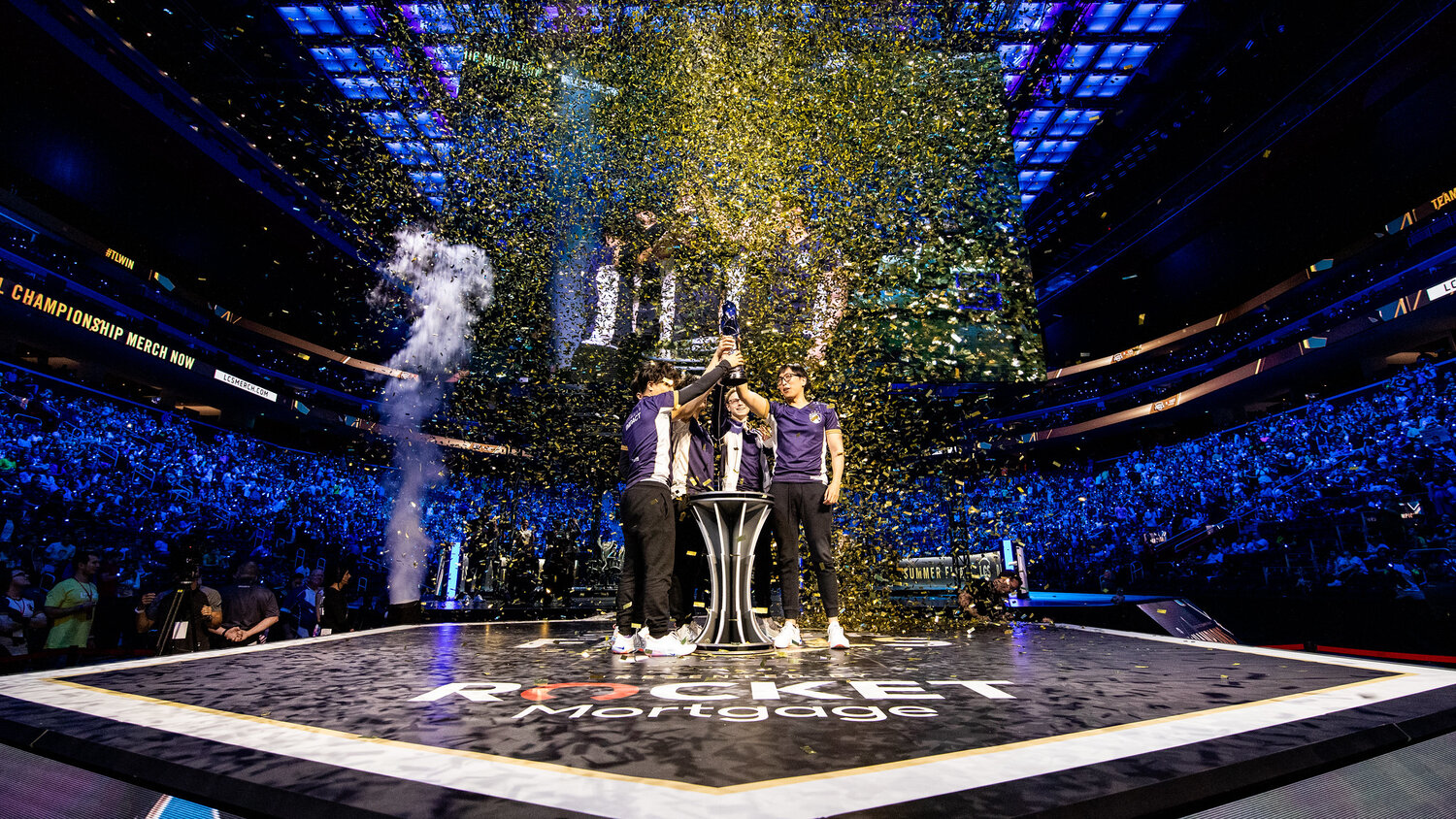
As co-CEO of Team Liquid, how do you spend your time and think about your core responsibilities?
Going way back to living in the gaming house with all the guys, it's been so much of everything - from taking out the trash to closing sponsorship deals, to negotiating media rights deals, to then coaching the players and being with them through tournaments. I feel like at different times I've done it all, even raising capital and working with investment banks. It's also evolved over time. If I were to describe it today, I feel like my main responsibility is to see where the industry is headed, where esports is headed, where the team model is headed, to see the mistakes of others and avoid those pitfalls of time and money, to inspire, help identify amazing people that are of the TL way, and to be part of the TL fam. That's how I view my main role. More tactically, it's conversations with investors, with my management team, budgeting, marketing and content decisions, all the while watching as many of our competitions as possible, which is so many at this point, I have a hard time watching them all. And ultimately just being a fan at heart, still screaming at the television or my computer; just being a fan before everything else and having a love for the game.
How do you personally make a co-CEO relationship work, because, let’s be honest, it doesn’t always work out. What advice would you have for others who are thinking about a co-CEO structure?
It's like a marriage. It's something that requires a lot of communication, honesty, holding each other accountable, being on a mission together, and working collaboratively. I spend more time with Victor than I do with anybody else. It requires a really good meeting of ethics and values. That's number one. The second thing is that we're complements of one another. I’m an ENTP on Myers-Briggs. He's an ISTP. We couldn’t be more different. We go about decisions very differently. He's more data-driven; I'm more intuitive-based. I'm in my element in sales, marketing, and content generation; he's fantastic on operations and process. I think that complementary approach to the co-CEO relationship works really well. We also respect each other quite a bit. We know how far to push something, to get the company to make the right decision. Ultimately we're just stewards for our stakeholders. Just putting a real focus on that responsibility and the ownership of it, for all the folks that have invested time and money into this organization. The last thing would be just a love for esports. Love seems like understating it. It's an obsession, maybe. We're both so aligned on that, so it makes all the work fun.
Let’s talk about company culture. How do you think about fostering a good work environment where winning is important but so is maintaining long-term objectives as well as your values?
If I were to describe the culture at Team Liquid, we do what's right. Period. Right matters at TL. I know that's really general, but it bleeds down into how we approach things. They're not for financial gain; they're not for the benefit of one individual. It's holistically thinking about something and saying, "What's the right thing to do here?" Sometimes that's not the best thing for the company, but we do it because it's the right thing for a staff member or a player. That has bled into our decision-making. Let's say we're on a player contract. We know it isn't working out with that player on the team. There are a lot of organizations that might hold that player in contract prison, so to speak. We're not one to do that. We care about players and their careers. We want to see opportunities for them. That might mean a termination, or that might mean a trade for no buyout.
We'll just do the right thing. I think 20 years of doing that has created a real brand for Team Liquid in the player community, where they trust us. They'll have their attorney read the contract, but deep down they're like, "They're going to do the right thing. They're not going to screw me over. If I'm going to start my career, I'm going to start at a place like Team Liquid. They're going to treat me fairly." It's not easy to get that brand mindset in players around the world, but we've managed to do it. When I spoke with Alphari, who's our top-lane player for League of Legends, he said, "Your brand speaks for itself. I want to play for you guys, because I know you'll do anything it takes to win, and you'll always put winning first, even if that means I'm not on the team." I love that.
I think Reddit’s CEO said something along the lines of when they look to hire, they look for the biggest delta between skill and ego. That resonated with me, because I’m like, "We do the same thing." We look for the biggest delta between skill and ego because that really emphasizes we, not I. That's what it takes to have all of these things work together - performance, the different Liquid enterprise verticals, and international, having contractors and employees around the world. Being a very diverse organization helped us see perspective in our decision-making process.
As Team Liquid has grown larger and more global, what have you changed about your culture? How has it evolved?
In the last two years we've seen some pretty explosive growth at TL. That's resulted in a significant number of new TL employees and contractors. The way that we've approached that is ensuring that our leadership teams are an extension of the values that Victor and I hold. They're trained at operating in that same way - not in the decisions themselves but the governing philosophy of what to use to make those decisions. By empowering our hiring managers to operate within those guidelines or boundaries, it helps us to maintain the culture. So many of us are esports fans and love gaming. If we're hiring somebody that doesn't understand this space, or is new to esports, it's almost a requirement that they're a sports aficionado in some genre, because they get what it means to be a sports fan. They quickly are watching our games and our general slack, going crazy like everybody else. That's something that ties us together as well.
Team Liquid constructs a lot of competitive esports teams and is pretty good at winning. Are there lessons learned from building esports teams that translate to building other types of teams across the business?
I'll use our League of Legends team as an example - the staff side that supports our League of Legends team. We brought in folks that were head analysts, junior analysts, head coach, assistant coach. The traditional sports analogue would be defensive coordinator and all of the roles on the coaching side. What we found is that folks come in, and we identify after they’re hired what they're good at and what they're not good at. You then have to adjust roles and responsibilities based on preference and skill. That's a constant evolution.
You need to be comfortable with that fluidity, not fit folks into a prescription of a role. Instead, once they come in and start working on something, and you determine what they're good at, adjust their roles and responsibilities, put them on new teams, and come up with a different reporting structure that makes sense for them. That's what's constantly fluid at Team Liquid. Our staff feel like they can meander into different things based on their interests. It’s more of a flat organization. That's something that we've learned from building our esports team that translated into building a project team or a department.
We try as much as we can to keep honest to the ebb and flow of our internal R&R (rules and responsibilities) over time, irrespective of title. What matters is the day-to-day thing that you'll do to drive value for your department, for yourself, for the company. It does need to change. We're in a new industry and a lot of different business verticals. It's not like someone's charted this territory before, where there's a title and a role that has proven to be successful over 100 years. There's a lot of exploration in that, and it requires the fluidity we're talking about.
TL's majority shareholder is aXiomatic, which has notable stakeholders like Ted Leonsis and Michael Jordan. What have you learned from rubbing shoulders with these guys? Any interesting stories?
We were in a bit of a quandary with our League of Legends team and Doublelift. Here's a superstar, someone that had been with us through championship after championship, that has so much experience and influence. We needed to come to a decision on whether or not he’d be continuing with the organization. It's a tough decision. You need to call sponsors and say, "Doublelift may no longer be here”; you've got to talk to team members that he's playing with and have those same conversations.
I remember calling up Zach Leonsis, who's the son of Ted Leonsis. I said, "You guys have run into this. You got a notable player, part of the brand, you're not sure if the best years are ahead or behind. You think they might be behind, but you're not 100% sure. What do you do? Do you restructure the organization to make it work?" He said, "There are two different types of sports clubs we've seen. The ones that will bend over backwards to keep the player, because they know that they're a substantial portion of their fan base, and there are others that are more competitively ruthless and will make those decisions. In a Bill Belichick kind of way, they will evaluate a player on what future value they have, not just past, and make those tough decisions when they need to. You need to figure out how you do that, but know that this isn't new. This has happened before."
He provided some other examples and helped us with the confidence to say, "TL's bigger than any player. We need to always do what gives us the best chance to win, because we owe it to the other players to create the best chance for them." It was a really tough decision. That kind of experience from managing traditional sports franchises through competitive success comes to bear in esports as well. Peter (Doublelift) will always have a place in my heart. I'm glad it ended up working out in the way that it did for Tactical (Doublelift’s replacement) and for Peter and for us. We just let transparency, honesty, and integrity guide those decisions. Don't do things behind closed doors; have tough conversations that need to be had. You owe it to people to be direct and honest when needed. That's always been a navigator for our decisions and how we are with players. It's worked out for us.
The Future of Esports
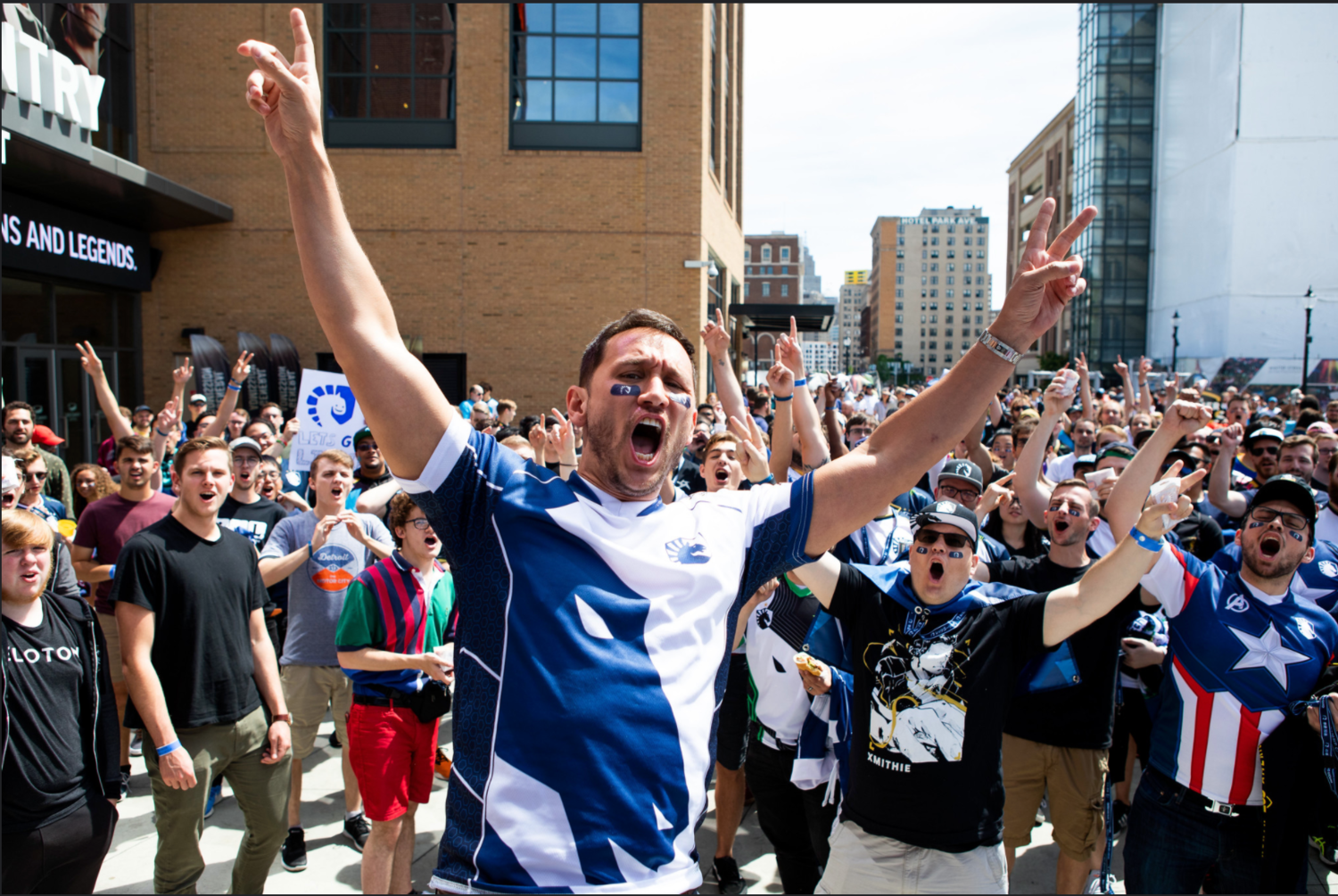
COVID times have been tough for everyone. How have you, as an organization, learned and grown from it? And has everything that's happened over the past year changed your view at all about the future for esports?
In 2014 there was this gold rush to esports. A lot of folks that didn't understand the space well enough — and knew that they wouldn't understand it even after being in it for a year — trusted the people that they were getting advice from. They trusted that this is a global industry with numbers off the charts in terms of engagement on a demographic that's very valuable. A lot of organizations were selling the concept of franchises, like, "Come and buy into this franchise, spend money on the Overwatch League, the Call of Duty League, or League of Legends franchise," and that it would just replicate owning an NBA spot or a spot in any league. Folks have come to understand that there are some leagues that do well and some leagues that don't. It varies by game. That allure has diminished over time.
Of the X number of esports teams out there, and I don't know the number, but my guess is hundreds, many of them will probably go out of business. Either poor management, they won't be able to reach any brand relevance, they won't be capitalized well enough, and they'll cease to exist in the next two to three years. But what I do believe in is that the number of gamers — both PC and consoles, but more on the PC side — has increased over time. The number of folks that will watch other people play video games will significantly increase. I feel like Fortnite and COVID have been accelerants to the total size of that esports gamer pie. It's bigger than it would have been in the same year because we were forced to create and consume content at home. I also think that the stigmas associated with gaming are starting to break, especially in the West. The undercurrent of this population of folks that will take to gaming in some way continues to grow. There's no reversing that.
There'll be a handful of teams that earn the heart share and have the brand relevance to survive multiple generations, competing in major esports along the way, creating fan bases and families that cheer for teams for generations. In our industry, even more so than in professional sports, it's going to be very top-heavy. Those handful of teams that garner a lion’s share of the market share of team fandomship will generate a lion’s share of the revenue opportunities that are out there, through direct-to-consumer commercialization, sponsorships, media rights, apparel, and digital goods sales (especially with all the buzz around blockchain and NFTs). The opportunity is still insane with the right investments, but I think there are also still a number of investments within esports on the team side that may not pan out. Not everything is a winner, but the underlying numbers and facts support that this thing is still in its early stages.
Where else does esports most need innovation?
If I were to highlight one area that needs innovation, it would be the spectator experience. It was once a “wow” that you could chat, watch a stream, and be part of a community on Twitch, but I think it’s changed more into a scrolling of comments, and then you watch the content. If there's more innovation there — bringing micro-communities together to watch events, enjoying with their inner circles, and having a really amazing time by using the tools of the viewing platform, then I could see all of these tailgates happening. The experience can be heightened by providing more digital tools that enable groups to watch together in better ways. I think that's where some innovation will probably happen and is needed. It will run parallel with the media rights deals and the digital platforms monetizing events in ways that aren’t just ad revenue but unlock new types of event revenue.
If you could only bet on one corner of esports, whether it's a specific game or genre or region or new feature, what are you most bullish about?
I have to say Team Liquid business. I’m not biased at all. [laughs] More specifically, I think the big, big, big nonlinear opportunity, from a business perspective, is direct-to-consumer commercialization. It’s taking the gamer, the developer, and the game that they play for, and disintermediating that relationship by creating something new. Right now most of the value falls to game developers, but, as developers, it's a 1 in 10 game; that's probably even high, in terms of success. There are a lot of games that fail. Being able to disintermediate that relationship, have a sports club, and have some direct-to-consumer path with a global audience is a pretty insane opportunity. Every game is a product, from my perspective, with a product life cycle, so if you bet on just one game, then at some point it gets a little tough, unless you bet on a developer. And there’s some developers that also ebb and flow. They've had lots of misses too, even the major ones. So I'm really big on the top echelon of esports teams.
Wrapping Up
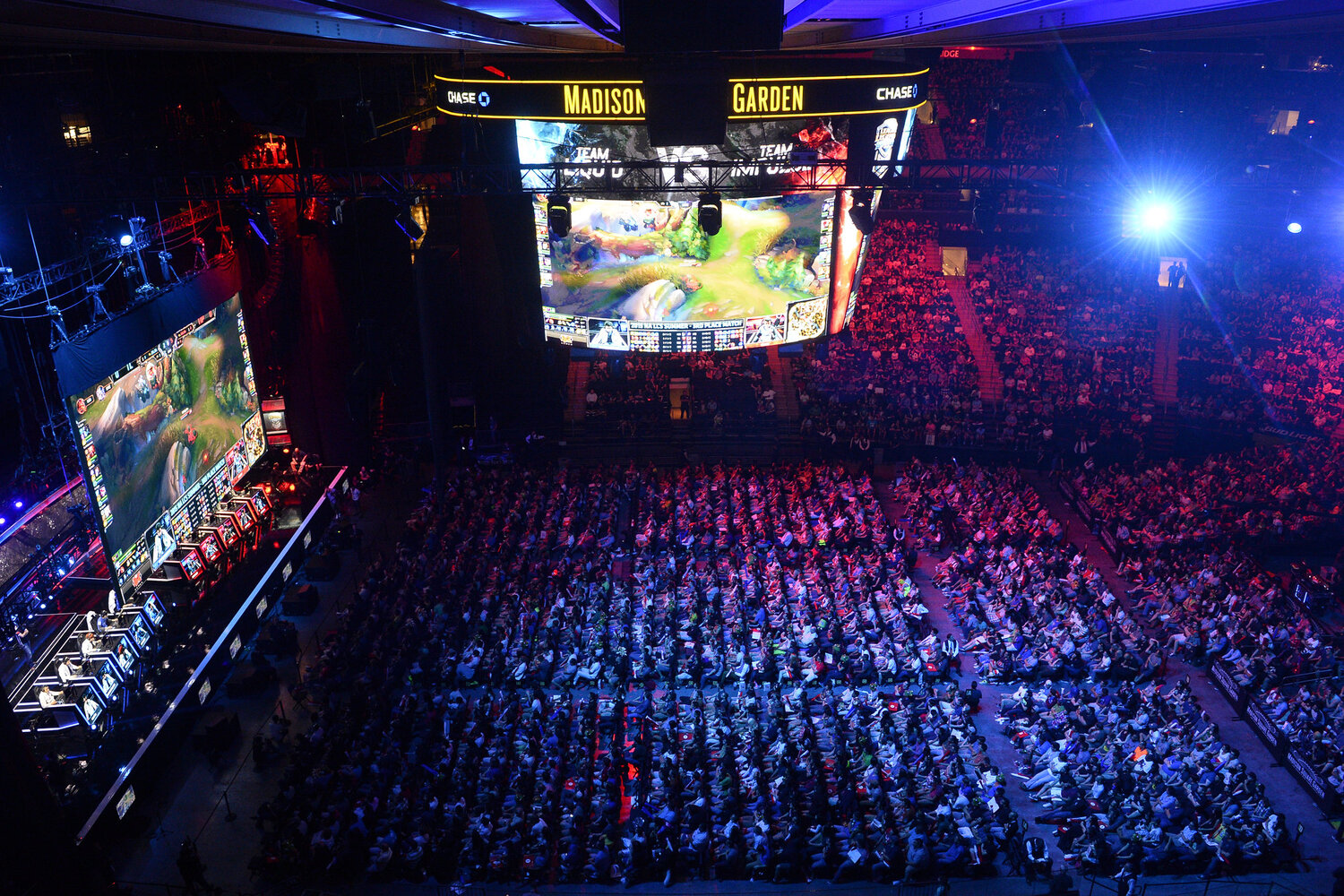
As you look back at your career in esports, what is your favorite memory?
It has to be Madison Square Garden. We competed there for the 2015 NA LCS Summer Playoffs. The energy, the excitement, winning on stage, the throngs of people everywhere. That kind of energy was just insane. When you grow up as a gamer, you're not often part of the physical crowds, at least for me. I'd never gotten into sports that way; I didn't go to sporting events. For me in Madison Square Garden, it was like, "Oh my gosh. There's a lot of people here, all in a very condensed area, all rooting for the teams." And there were a lot of TL fans there. It was pretty incredible. We tweeted out that we were going to be in Washington Square Park the next day after we competed, and thousands of people showed up at Washington Square Park. We didn't have a permit, so police came and shut us down. It was crazy, 3,000-4,000 people, and they were gamers so they created a single file line all around Washington Square Park, in such an organized way. But then the cops said to me, "You're either leaving in this squad car or in a taxi. You can choose right now." We left in taxis. [laughs] It was pretty cool.
This was awesome. Thank you, Steve.
This conversation is part of our ongoing interview series with leaders across the gaming industry. Subscribe to our newsletter to get notified of more.

